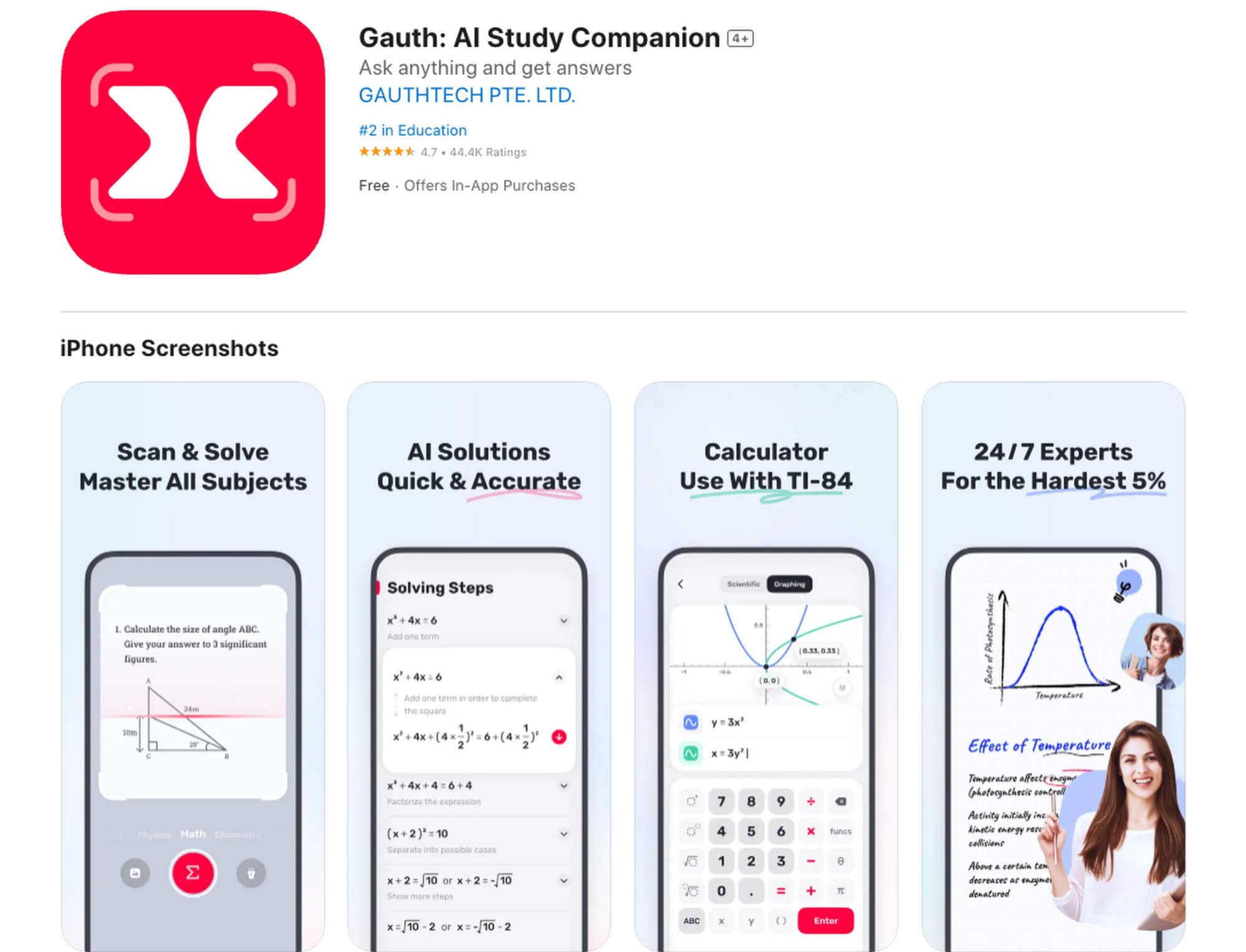Advertisement
Advertisement

TikTok owner ByteDance’s ‘AI homework helper’ Gauth soars in US education apps market despite political headwinds
- Gauth was the second most-downloaded education app for Apple iOS devices in the US as of Wednesday, behind language-learning platform Duolingo
- Beyond the US, Gauth has also become widely popular in Canada and the Philippines
Coco Fengin Beijing
Chinese-developed study apps powered by artificial intelligence (AI), including one from social media giant ByteDance, are gaining momentum in the United States, where the TikTok owner continues to face political headwinds.
The overseas success of these education apps shows how some Chinese education technology (edtech) enterprises have managed to survive Beijing’s crackdown on this sector.

In July 2021, the General Office of the Chinese Communist Party and the State Council banned private tutoring firms from making a profit via off-campus courses covering school curricula. Listed companies and overseas entities were also barred from investing, or acquiring stakes, in these edtech enterprises.
That crackdown prompted ByteDance to sack thousands of employees at its education unit, which company founder Zhang Yiming once envisioned as a strategic growth driver. Still, the tech unicorn has kept the education unit as one of its six major business groups.
Launched in 2020, Gauth was formerly known as Gauthmath and initially covered maths, while offering live support from human tutors. The app received a major rebranding last December after it embedded AI and expanded the subjects it covered.
Beyond the US, Gauth has also become widely popular in Canada and the Philippines, according to Data.ai. The app touts its capability to scan, solve and master all subjects, while providing quick and accurate answers as well as round-the-clock online experts to help answer a user’s hardest questions.
A year of living dangerously: timeline of Beijing’s crackdown on edtech
A year of living dangerously: timeline of Beijing’s crackdown on edtech
Question. AI, which was launched last year, uses a ChatGPT-like chat bot to interact with users and answer their questions.
In March, the app’s most active users were from Indonesia and the Philippines, according to an article by Chinese blog BaijingApp, which cited app tracking firm Diandian.
ByteDance, meanwhile, has been diversifying its presence in the US market, even as American lawmakers push for a bill that would force the company to divest TikTok’s US operations or face a ban in the country.
Beijing-based ByteDance is set to roll out a “TikTok Notes” app to rival Instagram. The firm is also paying influencers to promote its photo-and-video-sharing app Lemon8, which was launched in 2020.

Post
